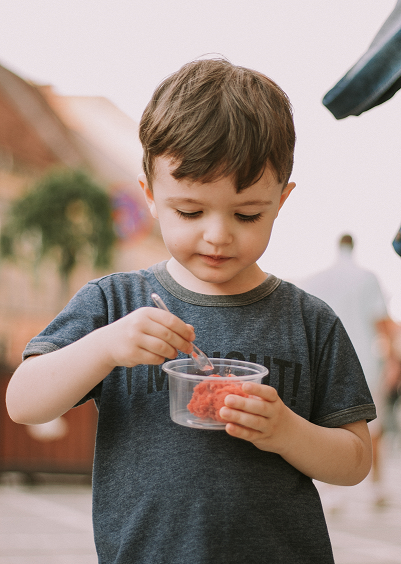Helping Your Child Eat Well
As parents and caregivers, you are very important in helping your child learn to eat. For your child, feeling good about eating is more important than how much they eat. Learning to eat new and different foods can be seen as an adventure.
What does eating well mean for children? It means that they:
- are interested in food
- like being at the table

- can try a new food and usually learn to like it
- eat when hungry and stop when full
- eat a variety of foods from all the food groups (see below)
- can eat in other places besides home
- can say "no thank you" politely when not wanting to eat
How can you help your child learn to eat well?
As parents and caregivers, you are very important in helping your child learn to eat. For your child, feeling good about eating is more important than how much they eat. Learning to eat new and different foods can be seen as an adventure. You can try these tips to help your child be successful on their eating journey.
- Make mealtime an enjoyable family time. Cook and eat together. Children learn a lot from watching and copying you.
- Provide 3 meals and 2-3 snacks daily with a variety of foods including grain products, vegetables and fruits, meats/meat alternatives, and milk/milk alternatives. Include at least one food that your child is comfortable with at each meal and snack time.
- Remember, as parents, you decide what, when and where to offer food. Let children decide if they will eat and how much they will eat. Recognize that children naturally know how much food their body needs. Provide time and many chances to try new foods and foods your child did not like before. Do not pressure your child to eat.
If your child is not eating well and you would like more information, register and attend the “Helping Your Child Eat Well” workshop offered through Vancouver Coastal Health, Public Health. See flyer for upcoming workshops.



